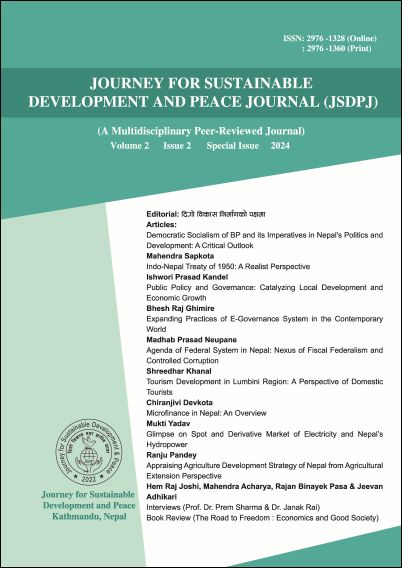Agenda of Federal System in Nepal: Nexus of Fiscal Federalism and Controlled Corruption
DOI:
https://doi.org/10.3126/jsdpj.v2i2.69571Keywords:
Federal system, corruption, decentralization, NepalAbstract
This research critically assesses Nepal's fiscal federalism, focusing on the interconnectedness of budget allocation, spending, revenue generation, and corruption at the provincial level. Using a mixed-methods approach, the study combines quantitative data analysis with qualitative insights to evaluate how weaknesses in fiscal management erode public trust in federalism. The findings show that while decentralizing power and resources is a core objective of the federal system, provincial governments remain heavily dependent on federal transfers due to limited internal revenue generation. The study reveals that provinces fall short of meeting public expectations, primarily due to insufficient and poorly managed expenditure capacities, resulting in substantial underperformance. Additionally, the research identifies a significant correlation between increased budget allocation and corruption, highlighting that higher public spending often leads to financial misconduct. This is reflected in unspent budgets and frequent misuse of public funds, which amplify public dissatisfaction with the federal system. The study emphasizes the need for improved fiscal autonomy, stronger accountability frameworks, and more effective resource-sharing mechanisms to enhance the efficiency of provincial governments and address rising concerns about the viability of federalism.
Downloads
Downloads
Published
How to Cite
Issue
Section
License
This license enables reusers to distribute, remix, adapt, and build upon the material in any medium or format for noncommercial purposes only, and only so long as attribution is given to the creator.




